Contents
| Part 1 (appears on this page) | Part 2 (scroll to end for link) |
| I. Introduction II. The Academic “Experts” |
III. Discussion IV. Conclusion and Policy Implications |
I
Introduction
This article follows from my review for Quadrant of the SBS documentary Is Australia Racist? which was hosted by Ray Martin, funded by Screen Australia (and therefore the taxpayer) and aired on Sunday, 26 February 2017.1 The program was grossly inaccurate and biased against Anglo Australians. In other words, it was typical of the wide-borders multicultural propaganda awash in the mainstream media over the last half century.
Here, I look behind the program’s glossy façade to examine another long term feature of multiculturalism: its academic enablers. I look more closely at the program’s four academic experts, their on-screen claims and previous writings. It is important to look behind the smooth opinions of laymen such Ray Martin if we are to discover whether the linked policies of massive immigration and minority privilege have any basis in reason and scholarship.
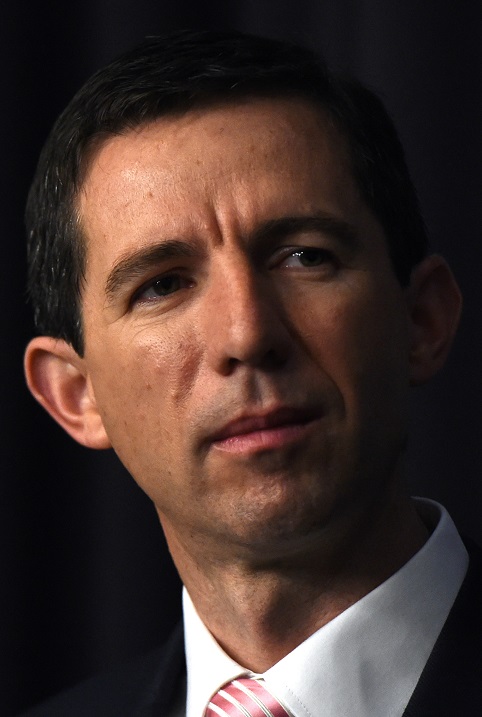
Commonwealth Minister for Education, Simon Birmingham
The academic dimension is important for another reason. It will provide readers with some understanding of the leftist bias that dominates the humanities and social sciences, and thus the indoctrination to which their children are subjected at university. Intellectual corruption has been common in the universities for several decades, though usually overlooked and always tolerated by most “conservative” politicians and commentators. The federal Minister for Education, Simon Birmingham, expressed shock at the Australian National University’s recent rejection of courses on Western Civilisation offered by the well-endowed Ramsay Centre.2 What has he or will he do to oppose the subversion of a vital institution? He and his advisers appear not to realise that the anti-national left has been in firm control of Australian universities for several decades. Radical cosmopolitans achieved dominance in the United States in the 1950s.3
As we saw in the first part, the professors’ contributions to the SBS program revealed poor scholarship. But the problem goes much further. All are advocates of aggressive multiculturalism, the ideology that portrays minorities as victims of people they call “Anglos” or “whites” while ignoring or minimising harm done in the opposite direction, that suppresses expressions of Anglo identity, and seeks to influence government policy to privilege minority interests.4 This is really a doctrine of multicultural supremacism. No wonder the focus on racial grievance comes with evidence and sometimes confessions of racial motivation. On or off the program, all express ethnic motivations, either as minority advocates or as critics of Anglo-Australia or both. Despite academic titles, the experts showed themselves ignorant of ethnic realities compared to the ordinary Australians they vilify.
The finding of bias by mainstream academics has implications for policy on higher education. That such propaganda is shown on SBS has implications for policy on public broadcasting, to be discussed at the end of this article.
II
The experts
This section briefly discusses the four academics employed by Ray Martin. It attempts to explain why none of them detected or protested the program’s errors of fact and method. In order of appearance, they were professors Kevin Dunn, Andrew Markus, Andrew Jakubowicz, and Lin Paradies.
Kevin Dunn
Kevin Dunn is Dean of the School of Social Science and Psychology and Professor of Human Geography and Urban Studies at the University of Western Sydney (UWS). His anti-racist activism is directed at the Australian majority and consists of criticising Anglo ethnocentrism and opposition to diversity and Islam. He sees Anglo identity as a risk factor for minorities due to Anglos allegedly dominating Australia’s ethnic hierarchy. At the same time, minority and indigenous identity is treated as a legitimate and rich human value.
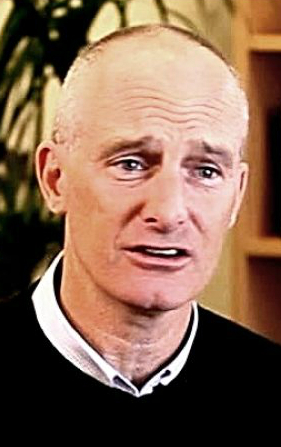
Prof. Kevin Dunn
Prof. Dunn’s publication list is a window into academic multiculturalism. His research is funded by the academic and multicultural establishments. He researches racism and ethnic discrimination but, it seems, only when committed by mainstream Australians. He is not interested in Anglos being victimised, only in their transgressions against others, which includes denials of racism and privilege. These, together with immigrant victimhood, are treated as axiomatic. For example, he states that the “new racism” is a distinctly Anglo view of the nation as assimilationist, ethnocultural, or egalitarian. He argues that it is racist to assert the equality of all Australians, because this (supposedly) denies white privilege.
Dunn studies Muslims’ and other immigrant groups’ experience of hostility, which as noted earlier he sees as resulting from a phobia suffered by vast numbers of Anglos. In Dunn’s view, “Islamophobia” constitutes a type of racism. The basis for this claim includes a paper arguing that dislike of Islam carries a racialised perception of Muslims. But the paper fails to identify any putative marker of Islam related to descent or race.5 In another paper Dunn and colleagues stated that “opposition to mosque development in Sydney had depended heavily on stereotypes of Islam as fanatical, intolerant, militant, fundamentalist, misogynist and alien”. However, the stereotype was not tested. How true or false was it? The analysis contained no treatment of Muslims’ behaviour, quantitative or qualitative, to assess their impact on non-Muslim Australians.
Andrew Markus
The organisation headed by Andrew Markus, the Scanlon Foundation, is among the most influential and prestigious NGOs promoting multiculturalism and the high levels of ethnically and religiously diverse immigration that feed it.6 The Foundation works together with the Australian Multicultural Foundation. Its reports on social cohesion repeatedly downplay the negative social impacts revealed by its own data, effectively promoting permanent mass immigration.
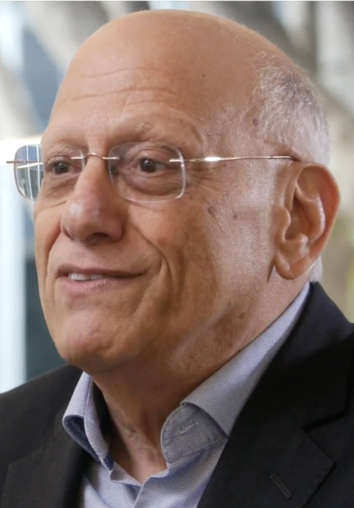
Prof. Andrew Markus
For Markus the Scanlon Foundation is more than a job. He has been critiquing Anglo Australia and traditional immigration restriction since before his doctoral research conducted at La Trobe University, published in 1979 under the title Fear and Hatred. Purifying Australia & California 1851-1901.7 Ethnic bias was evident in that first book, where Markus attempted to explain race relations between Anglos and Chinese by studying only one side. He did not examine Chinese culture or group behaviour in the nineteenth century. Doing so would have revealed ethnocentric beliefs and practices. It would have been especially advisable to study social relations among diaspora Chinese communities. It is important to understand the role of the extended Chinese family and ethnocentrism in fostering group solidarity. He could have reported evidence of mainland Chinese reactions to large-scale foreign immigration and economic competition in the nineteenth century, if it were ever permitted. Markus also ignored cohesive ethnic middleman groups that have helped make Chinese communities a market-dominant minority throughout Southeast Asia.8 Neither did he explore the evidence that ethnocentrism and other aspects of group psychology are not a Chinese or a white disease but universal to human nature. The scientific literature on the subject was already developing by the 1970s.9 Instead his book was a single-minded assault on Western societies typical of aggressive multicultural ideology. The fact that such poor methodology could earn a Ph.D indicates how low academic standards had dropped in the humanities and social sciences as early as the 1970s.
Thus Markus has a long history of criticising Western ethnocentrism while ignoring the same and often more intense behaviour in minorities. His earlier book – From the Barrel of a Gun. The Oppression of the Aborigines, 1860-1900 (1974) – also fitted the pattern of an anti-Anglo activist using social justice tropes. Markus supports the UN-sponsored Racial Discrimination Act 1975 (Cth) and its racial vilification amendment, including the controversial section 18C. He wrote sympathetically about Al Grassby,10 the first commissioner under the Act, long after Grassby’s Mafia connection became known. Markus defines intolerance as a characteristic unique to the majority and by implication to Anglo Australians. In the 2014 Scanlon Report, he wrote:
The intolerant are characterised by unease when in the presence of members of minority groups, their belief that multiculturalism does not enrich Australia, their demand that immigrants should assimilate to what they see as the Australian way of life (or go back to their countries of origin) […]11
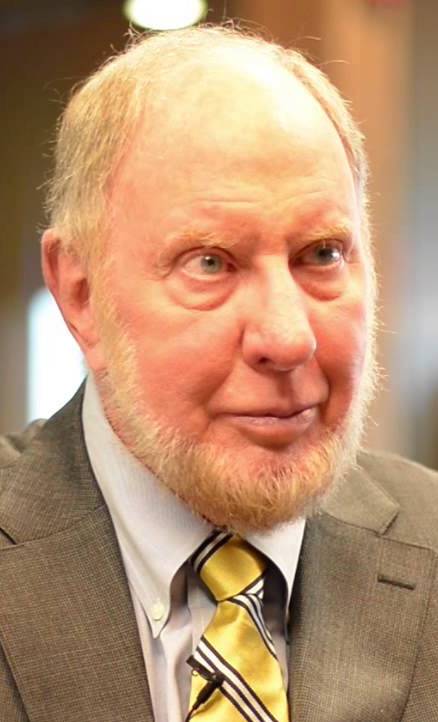
Prof. Robert D Putnam
It is a prejudicial assumption that intolerance is expressed only towards minorities and never by them. Markus’s blanket defence of multiculturalism, his assumption that it is illegitimate to disapprove of mass diverse immigration, ignores a mountain of evidence on the social and economic costs of ethno-cultural diversity.12 This hostility towards Anglo Australia has been typical of the multicultural establishment from its beginnings. Without that animus it is inconceivable that the project to transform Australia through immigration could have been maintained in the face of rising evidence of its harmful effects. Those effects cut deeper than rising crime and disorder. Scanlon survey data show that residential areas of high immigration settlement suffer significant losses of social trust, sense of belonging, feelings of safety and other measures of social cohesion. As Markus himself concludes, “[t]his finding supports the interpretation of Robert D. Putnam, the Harvard researcher discussed in Part 1 of this article, that ethnic diversity has a significant negative impact on social cohesion.”13
Ray Martin recruited Markus to help pass judgment on our country despite or because of Markus’s animus. Or perhaps the recruiter was the program’s adviser, Andrew Jakubowicz.
Andrew Jakubowicz
Andrew Jakubowicz was “thematic adviser” to Is Australia Racist?, presumably responsible for conceiving and vetting much of the program’s content.14 He is Professor of Sociology at the University of Technology Sydney and was foundation director of the Centre for Multicultural Studies at Wollongong University. He was employed by the Office of the Board of Studies of New South Wales to produce the website for school students, Making Multicultural Australia in the 21st Century. In introducing students to the website, Jakubowicz states that “For much of Australia’s history (until about 1975), governments asserted the superiority of the White European races – especially the British […]”15 That is untrue. In contrast, Aborigines are described in unstintingly positive terms: “the Indigenous populations sustained some of the world’s longest surviving cultures, ones rich in oral and visual traditions, open to learning and evolution.”
Instead of racial chauvinism, students should have been presented with some facts, such as that the British colonists brought with them culture and technology of great value and that native culture and technology had some weaknesses. Instead, the website’s information to students includes criticism of objections to Asianisation and excessive immigration, which the website mocks as “Voices of the past in Anglo primal scream”.16 This white baiting is not balanced by information about the mixed origins of multiculturalism, including its radical, undemocratic and criminal roots.
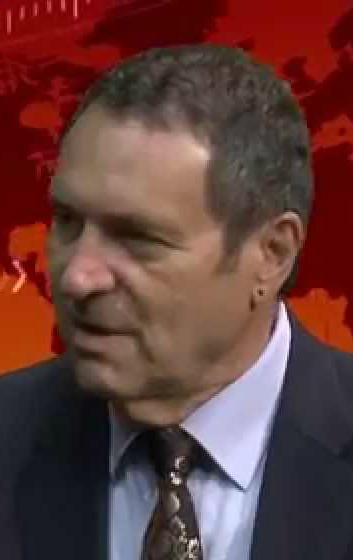
Prof. Andrew Jakubowicz
Prof. Jakubowicz is an influential disseminator of ideology hostile to the status and continuity of Anglo-Australia. In his view, the historic nation has no legitimacy, being built on conquest and empire. His neo-Marxism holds empire to be one of the great evils, one that Australia has acquired. He writes that “Great Britain and Australia have long historic links, sharing many cultural orientations, the one of course the founder through invasion of the other.”17 This assumes that Britain invaded Australia, instead of creating and naming it through exploration and settlement. What the British “invaded” from 1788 was not Australia in name, demography, economy, culture or religion.
Jakubowicz argues that multiculturalism is a fraud because it benefits the (allegedly) dominant Anglo population. British and Australian governments have claimed that their societies have been tolerant of diversity, reflecting genuine expressions of Anglo-liberalism. In fact these governments “disguise systematic structures of racialised inequality masked by surface egalitarian discourses.”
This account resembles Dunn’s view that egalitarianism is a form of Anglo racism. Jakubowicz also shares Dunn’s assumption that Anglos dominate Australia’s racial hierarchy. “In most Western societies Christian values or Christian social institutions dominate public debate and public practice.”18 Church leaders might be surprised to hear that. Even if “Christian” is taken to have an ethnic designation, it is implausible that a dominant culture would allow itself to be reduced in demography and status as has Anglo Australia since the 1970s. Neither scholar notices this contradiction. For them, white Christian dominance is axiomatic. Christians can never be victims or share with other ethno-religious groups the same interest in group continuity and welfare.
Professor Jakubowicz’s antagonism to the nation is revealed when he encourages Chinese ethnic activism within Australia. He hopes that Chinese immigrants will help break down white Australian racism, though it seems the real target is the cohesion and status of white society. Jakubowicz looks forward to Chinese-Australians developing a united front, an “ethnically-focused organisation […] able to both articulate interests of their groups, and engage in coalitions with similar groups to deliver broader policy outcomes that provide individual benefits to the groups, and to their constituencies”.19

Fmr. PM John Howard, Member for Bennelong.
It is relevant that Beijing is already utilising Chinese-Australian individuals and organisations as agents of influence in this country, a development that is alarming security analysts.20 Chinese voters have been swayed by ethnic interests for many years, an example being Prime Minister John Howard’s loss of the seat of Bennelong in 2007.21 Sam Dastyari, a Labor powerbroker, was forced to resign from parliament after he allowed improper influence by local Chinese businessmen; his foreign policy pronouncements were slavishly pro-Beijing.22 Chinese community leaders helped defeat the Abbott government’s attempt to reform the draconian section 18C of the Racial Discrimination Act.23 It is true that apart from the important matters of identity and security, Chinese have been in the main high quality immigrants with stable families, an admirable work ethic, low crime rates, and strong educational outcomes. But the Chinese population has risen from close to zero to about five percent of the population since the 1970s, concentrated mainly in capital cities. This success largely invalidates attempts to portray them as victims. Instead the issue of greatest import to Australia concerns their loyalty. If Markus and other academics had asked the obvious questions the political class would be informed on Chinese ethnicity and business cohesion, matters of national security at a time when China has become the world’s second largest economy and is increasingly activated by nationalism. Decades ago they would have realised that many Chinese Australians feel, or will come to feel, allegiance to their ancient homeland. Some would have come to respect Australia’s founding leaders for sparing the country a large Chinese minority. They would have been right to ask what madness led governments to squander this social capital by introducing a potential fifth column into the country?
Jakubowizc does not canvas strategies Australia could use to protect its sovereignty against a diaspora with ties of blood and culture to an aggressive power in our region. Instead he delivers a brief for ethnic Chinese grievance against alleged white Australian racism. He cites Kevin Dunn among others to assert that the “Australian political system is still influenced by racist histories, while Asian immigrants still experience some forms of racism.”24 Jakubowicz states that racism is a defining feature of the Australian nation, as it has been from the start of white settlement. He disparages fears of Chinese invasion, as if such a threat is out of the question, and calls for the final breakdown of white racism to allow Chinese ethnics full involvement in national identity and government. He also calls for Australia to eliminate what he sees as the country’s racialised tradition of government. Only then can Chinese-Australian history, and presumably the history of every other immigrant group, become an integral part of the emerging Australian ethno-nationalist narrative that will at last be free of racism.

Prof. Yin Paradies
Jakubowicz’s fantasy of a socially engineered national identity is also a brief for Chinese ethnic competition against white Australia. Typical of multicultural ideologues, he simultaneously calls for minorities to organise ethnically to advance their corporate interests and denies the legitimacy of white Australians doing the same. Like Andrew Markus, he does not attempt to compare Anglo and Chinese tribalism.
In Jakubowicz’s view Anglo Australians have no legitimate ethnic interests. Their only ethical option is complete acquiescence to minority demands, which do represent legitimate group interests. His call for Chinese-Australian inclusion makes no reference to numbers. Like other mainstream multiculturalists, he treats the displacement of Western populations as not worth mentioning. Note also his cavalier attitude towards Australian security despite acknowledging the growth of Han nationalism and its linkage to Chinese economic and military power. These potential threats can only be exacerbated by the growing Chinese presence in Australian politics and business, which Jakubowicz sees as an encouraging trend.
Yin Paradies
Yin Paradies is Alfred Deakin Professor in the Faculty of Arts and Sciences at Deakin University. He identifies as of Aboriginal, Anglo and Asian descent. Beginning with his doctoral research, Professor Paradies has studied how racism affects the health of indigenous peoples. He also studies anti-racism theory, policy and practice.25 Like the other experts who appeared in the program, Professor Paradies does not research the prevalence of racism among indigenous Australians or the adverse effects on non-indigenous people of indigenous behaviour. It would seem that Professor Paradies’ academic career has centred on a minority ethnocentric perspective, which also happens to be his private perspective. Professional ethnics are completely normal among multicultural intellectuals, their personal activism merging with taxpayer-funded academic work. At the same time they are decidedly critical of any academic who takes the majority’s perspective.
[GO TO PART 2: Discussion and Policy Implications]
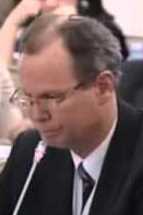
Dr Frank Salter
— Dr. Salter received his PhD in Australia (Griffith University) but spent most of his career at the Max Planck Institute for Behavioural Physiology in Germany. Frank has taught in Britain, the US, Central and Eastern Europe. He has authored and co-authored various peer reviewed articles and essays. His most recent book is The War on Human Nature in Australia’s Political Culture: Collected Essays (Social Technologies, 2017). Now returned to his native Australia, he consults on policy and management issues.
Endnotes;
- Frank Salter, “The Inherent Racism of SBS’s Multiculturalism” Quadrant Vol. 64 No. 1-2 (January-February 2018) pp. 58-64.
- Simon Birmingham, “These days universities are hostile to the values that created them” The Australian (25 May 2018) p. 14.
- Eric Kaufmann, The Rise and Fall of Anglo America (Harvard University Press, 2004).
- Multiculturalists routinely use ethnic terminology such as “Anglo” and “white” to describe traditional Australia. See for example: Bernard Salt, “The way we are” Weekend Australian Magazine (20 January 2018) p. 34. Bernard Salt provides an example of the language used by multicultural advocates: “White Australia and Anglo Australia are […] anachronisms from a different nation.” He asserts that Australia is now “cosmopolitan”.
- Kevin Dunn, Natascha Klocker, Tanya Salabay, “Contemporary racism and Islamophobia in Australia: Racialising religion” Ethnicities Vol 7 Issue 4, pp. 564-589.
- See “Overview” at the Scanlon Foundation website (undated) <scanlonfoundation.org.au> (accessed: 2 March 2018).
- Andrew Markus, Fear and Hatred: Purifying Australia and California 1850-1901 (Hale & Iremonger, 1979).
- Janet Tai Landa, Trust, Ethnicity, and Identity: Beyond the New Institutional Economics of Ethnic Trading Networks, Contract Law, and Gift-Exchange (University of Michigan Press, 1994).
- Kenneth B. Clark and Mamie K. Clark “The Development of Consciousness of Self and the Emergence of Racial Identification” Journal of Social Psychology, S.P.S.S.I. Bulletin Vol. 10 No. 4 (1939) pp. 591-599. [DOI:10.1080/00224545.1939.9713394]; Donald T. Campbell, “Ethnocentric and other altruistic motives” in David Levine (Ed.) Nebraska Symposium on Motivation Vol. 13 (University of Nebraska Press, 1965) pp. 283-311: Campbell presented a dual genetic-cultural model for the evolution of human universal of ethnocentrism; Muzafer Sherif, In Common Predicament: The Social Psychology of Intergroup Conflict (Houghton-Mifflin, 1966); Gottfried van Benthem van den Bergh, “Contemporary Nationalism in the Western World” Daedalus Vol. 95 No. 3 (Summer, 1966) pp. 828-861; Marilynn B. Brewer, “Determinants of Social Distance Among East African Tribal Groups” Journal of Personality and Social Psychology Vol. 10 Issue 3 (1969) pp. 279–289 [DOI:10.1037/h0026563]: this classic paper by psychologist Marilynn Brewer presented her case study of tribal attitudes in East Africa as evidence for the primordial origins of ethnic identity, ethnocentrism, and ethnic conflict – white Australians do not figure in her account; Edna Bonacich, “A Theory of Middleman Minorities” American Sociological Review Vol. 38 No. 5 (October, 1973), pp. 583-594; Nathan Glazer and Daniel Patrick Moynihan Ethnicity: Theory and Experience (Harvard University Press, 1975); Pierre van den Berghe, “Race and Ethnicity: A Sociobiological Perspective” Ethnic and Racial Studies Vol. 1 No. 4 (1978) pp. 401-411 [DOI: 10.1080/01419870.1978.9993241]: this is another classic paper proposing that ethnicity, a human universal, is an extension of kinship, another universal; Henri Tajfel, “Social Identity and Intergroup Relations” Annual Review of Psychology Vol. 33 Nos 1-39 (February 1982) [DOI:10.1146/annurev.ps.33.020182.000245]: this classic of social psychology was the culmination long research.
- Andrew Markus, “Australian Opinion on Issues of Race: a Broad Reading of Opinion Polls, 1943-2014” in Tim Southphommasane (Ed.) Perspectives on the Racial Discrimination Act: Papers from the 40 years of the Racial Discrimination Act 1975 (Cth) conference (Australian Human Rights Commission, 2015) p. 37.
- Andrew Markus, Mapping Social cohesion – The Scanlon Foundation Surveys (The Scanlon Foundation, Australian Multicultural Foundation, Monash University, 2014) p. 56.
- Frank Salter, “Ethnic Diversity, Foreign Aid, Economic Growth, Social Stability, and Population Policy: A Perspective on W. Masters and M. McMillan’s Findings” in Frank Salter (Ed.), Welfare, Ethnicity, and Altruism. New Data and Evolutionary Theory (Routledge, 2004) pp. 148-171; Frank Salter, “Ethnic Nepotism as Heuristic: Risky Transactions and Public Altruism” in Louise Barrett and Robin I. M. Dunbar (Eds.), Oxford handbook of evolutionary psychology (Oxford University Press, 2007) pp. 541-551 [DOI:10.1093/oxfordhb/9780198568308.013.0037]; Robert D. Putnam, “E Pluribus Unum: Diversity and Community in the Twenty-First Century” Scandinavian Political Studies Vol. 30 No. 2 (2007) pp. 137-174 [DOI:10.1111/j.1467-9477.2007.00176.x].
- Andrew Markus, Mapping Social cohesion – The Scanlon Foundation Surveys (The Scanlon Foundation, Australian Multicultural Foundation, Monash University, 2012) p. 21.
- Jakubowicz is listed in the credits as the “thematic adviser”.
- Andrew Jakubowicz, “The Making of Multicultural Australia” a MULTICULTURAL History of Australia (online) (undated) <multiculturalaustralia.edu.au> (accessed, 20 March 2017).
- Andrew Jakubowicz, “Hotwords A-Z” a MULTICULTURAL History of Australia (online) (undated) <multiculturalaustralia.edu.au> (accessed, 20 March 2017)
- Andrew Jakubowicz, “Anglo-multiculturalism: Contradictions in the Politics of Cultural Diversity and Risk” International Journal of Media and Cultural Politics Vol. 2 No. 3 (8 February 2007) pp. 249-266.
- Ibid.
- Andrew Jakubowicz, “Empires of the Sun: Towards a post-multicultural Australian politics” Cosmopolitan Civil Societies Journal Vol. 3 No. 1 (2011) pp. 65-85 at 78.
- Primrose Riordan, “End US alliance, pivot to China” The Australian (17 April 2017) p. 6; Primrose Riordan, “Some projects less useful: PNG grapples with Chinese influx” The Australian (11 January 2018) p. 6; Anthony Klan and Primrose Riordan, “Chinese aid doesn’t always help, pacific nations find” The Australian (online) (12 January 2018 @ 12:00 AEST) <theaustralian.com.au> (accessed, 12 January 2018); Hugh White, “An American pivot out of Asia would force us to play history’s hand” The Australian (18 December 2017) p. 8; Fergus Hanson, “Chinese Australians deserve protection from Beijing” The Australian, 18 December 2017) p. 10; Jason Thomas, “China hopes to have its way without firing a shot” The Australian (28 December 2017) p. 10.
- Phillip Cooray, “How Labor’s Machine Won Asian Votes for McKew” Sydney Morning Herald (online) <smh.com.au> (13 December 2007).
- Amy Remeikis, “Sam Dastyari quits as Labor senator over China connections” The Guardian Australia (online) <theguardian.com> (12 December 2017).
- Frank K. Salter, “Section 18C, Multiculturalism and Power” Quadrant Online (28 March 2014).
- Andrew Jakubowicz, op. cit. (2011) at p. 79.
- More information can be found on the online archive at the Lowitja Institute, and the profile page at the Deakin University (both accessed, 17 March 2017)
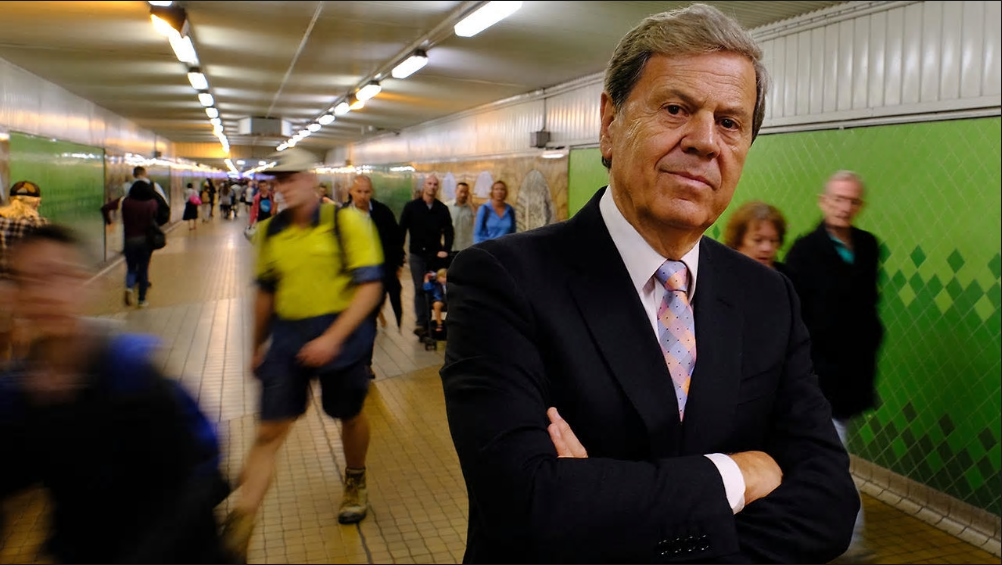

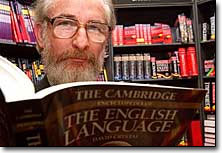
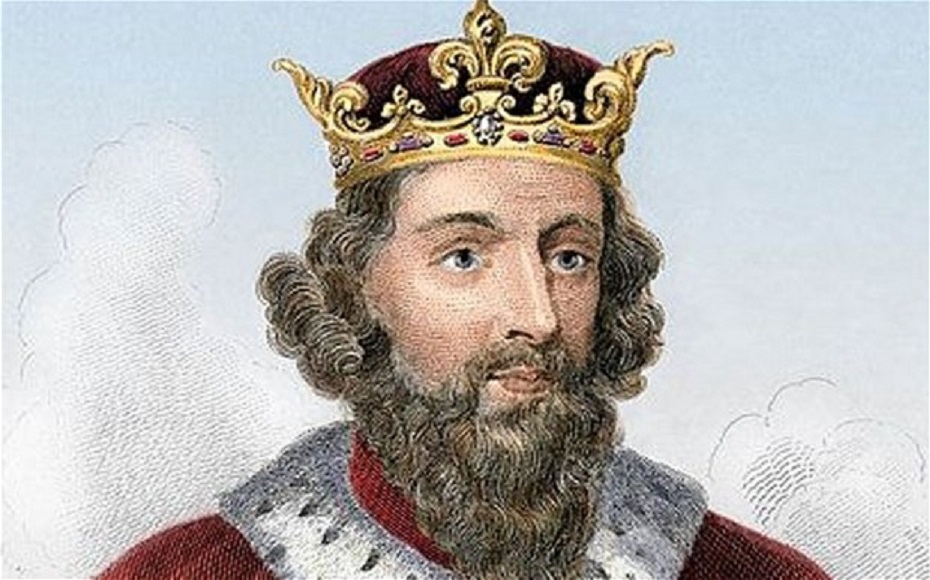
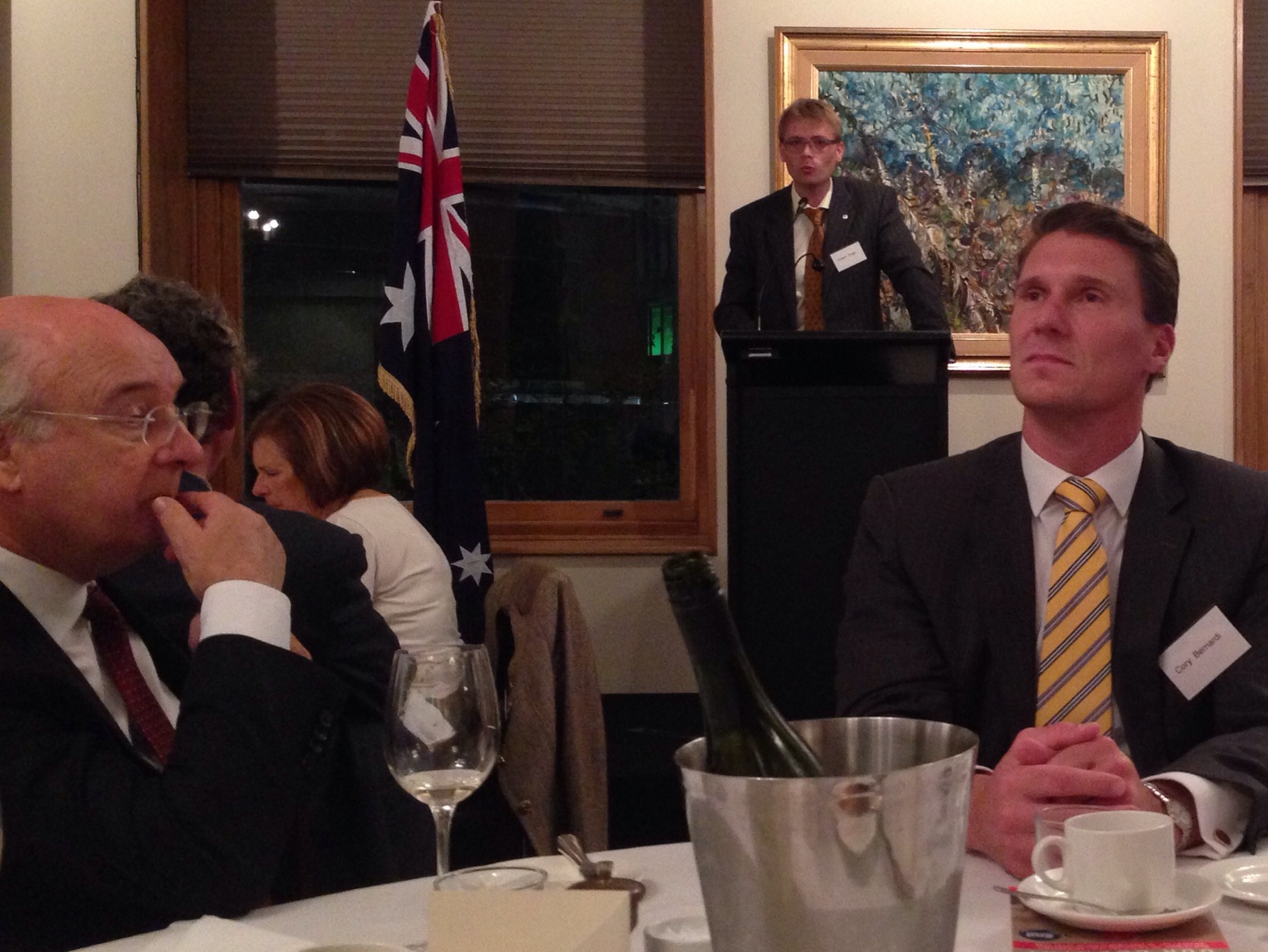
Leave a comment